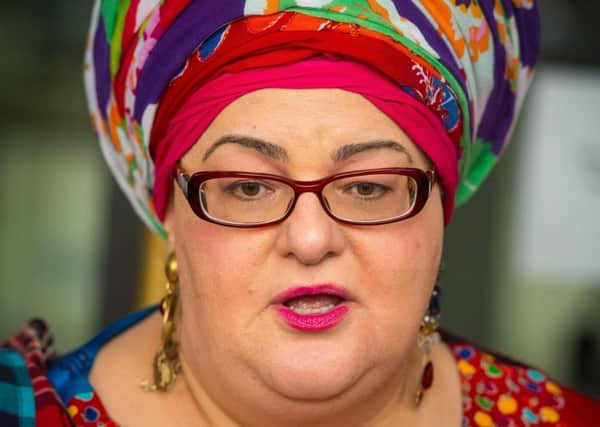Andrew Vine: Charity doesn't have to begin in the home counties


It is not a new state of affairs. This has been the case for several years, yet the charity survives and continues to do work that is admired and applauded by all who come into contact with it.
Nor is it a state of affairs that will come as a surprise to many of the scores of independent charities which contribute so much to the life of Yorkshire, and make such a difference to the lives of tens of thousands of vulnerable people, spanning all ages and backgrounds.
Advertisement
Hide AdAdvertisement
Hide AdThey do so on a wing and a prayer, sustained by goodwill and commitment, but often by very little money.
Like a woman I know who works with frail elderly people, to whom she is more like a daughter than a helper because of her kindness.
The charity which employs her can only afford to do so for 20 hours a week.
Most weeks, her working hours are treble that, such are the needs of those she helps to live independently. Pay or no pay, she will not turn away because time’s up.
Advertisement
Hide AdAdvertisement
Hide AdThere are many like her, to whom a debt of gratitude is owed that is not appreciated anything like widely enough.
She, along with others of my acquaintance amongst Yorkshire’s charitable community, has been wryly amused by the recent squirmings of discomfort on the part of some of Britain’s biggest and best-known charities.
First, it was their aggressive fundraising tactics highlighted by the death last year of Britain’s longest-serving poppy-seller, 92-year-old Olive Cook, from Bristol, who took her own life after being bombarded with requests for donations.
Suddenly, organisations that the public had assumed were motivated by the highest of principles were revealed to be operating like unscrupulous salesmen chasing a bonus.
Advertisement
Hide AdAdvertisement
Hide AdThen, it was the collapse of Kids Company, and this month’s damning report by a committee of MPs into its shameful failures of management and governance.
And now, it is a forthcoming Government clampdown on charities using public funds for political lobbying.
Both the lobbying issue and the failure of Kids Company have shone a light into the world of the big charity players that has revealed some are more like quangos because of the huge sums of public funding they receive.
According to the National Audit Office, several major charities receive about 90 per cent of their funding from the public purse, something not realised by the wider public which is always willing to put something into the tin of a collector.
Advertisement
Hide AdAdvertisement
Hide AdOf course, this money is put to good use, often providing statutory services that might once have been the responsibility of councils or the NHS, and charities have to account for how every penny is spent.
As the collapse of Kids Company demonstrated – albeit belatedly – the money will be withdrawn unless it is spent properly, and there can be no doubt that the major charities who receive the most are passionately committed to using the funds wisely and effectively.
But how different such generous funding is from a life of 60 hours of work a week when only 20 are paid – and then at rates lower than in either the public or private sectors – in order to preserve the dignity of an elderly person who is desperate not to be a burden to anybody.
The public largesse to organisations that can afford national advertising campaigns, slick marketing operations and central London office blocks is a world away from the reality for so many Yorkshire charities.
Advertisement
Hide AdAdvertisement
Hide AdTo them, a Saturday packing shoppers’ bags in a busy supermarket in exchange for small change put into the collection buckets is a rare prize.
So is the support of a local business, either financially or with goods and services, often enough as a result of somebody within the company being alerted to the existence of a small charity by knowing somebody who has received help from it.
A Government handout of funding that would allow the employment of full-time staff, or guarantee that their charity will stay in business for the coming 12 months, is the stuff of dreams.
It is not that our independent charities are resentful of the state support handed out to large, high-profile counterparts.
Advertisement
Hide AdAdvertisement
Hide AdIt is more a lingering sense of unfairness and frustration that so much work goes unseen and unappreciated by those who hold the nation’s purse-strings.
One consequence of the Kids Company debacle is that the whole charity sector – and the Government – will take a long, hard look at funding and governance.
As part of that, the Government should resolve to look beyond the office blocks of London and see the priceless work that is being carried out in precarious financial circumstances by smaller charities.
They are making a huge difference. It is high time that they received the recognition and funding they deserve.